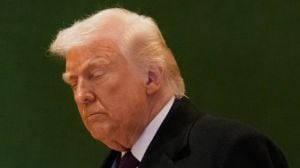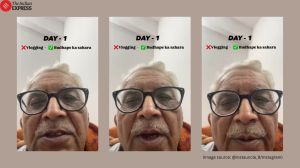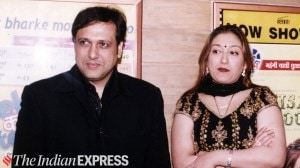Cast out, but correct
An issue has arisen regarding the expulsion of Somnath Chatterjee from the CPM from the membership of the party...

An issue has arisen regarding the expulsion of Somnath Chatterjee from the CPM from the membership of the party after he defied the party8217;s diktat to quit his office ahead of the trust vote which the Government just won.
What the Left parties have lost sight of is the fact that as per the Constitution, the Speaker, being chosen by the entire House of the People, is expected to act impartially and in a fair and unbiased manner. The Speaker ought not to become partisan so as to avoid an unconscious bias for or against a particular view and to inspire confidence in all sections of the House about his integrity. The Left also seem to have lost sight of the fact that once Somnath Chatterjee was elected as the Speaker, ipso facto he ceased to be an active member of the CPM and that his first allegiance was and is to the Constitution and to the House of the People.
That having being said, once elected, the Speaker can only be removed in three ways from office- a if he ceases to be a member of the House; b if he resigns or c if removed from office by a resolution passed by a majority of the members of the then House Article 94. Though the provisions of the Tenth Schedule to the Constitution, in particular Rule 2b, specifies that if a member 8220;votes or abstains from voting in such House contrary to any direction issued by the political party to which he belongs or by any person or authority authorised by it in this behalf, without obtaining, in either case, the prior permission of such political party, person or authority and such voting or abstention has not been condoned by such political party, person or authority within fifteen days from the date of such vote or abstention.8221;, a specific exception has been carved out in respect of the Speaker and the presiding officers of the legislatures Rule 5, Tenth Schedule whereby the provisions of the anti-defection law referred to above will not apply to the Speaker or the presiding officers of the Legislatures.
Rule 5 referred to above is a special provision intended to cover the presiding officers of the houses of legislatures who on their election may like to express their firm resolve to function in a non-partisan manner by resigning and severing their links from their erstwhile political party. The rule also provides that no disqualification shall be incurred by such presiding officers voluntarily giving up their party membership on rejoining their party on ceasing to hold the office of the presiding officer. As such the Speaker cannot even rejoin his own party so long as he continues in office. If the political parties to which the Speakers belonged were able to keep the speakers in terrorem then on all occasions the Speaker would be compelled to act as per the party diktat and not as the independent constitutional functionary that he is expected to be.
A member of the House comes to it, not only because he was given a ticket by his party, but also because he was elected by the voters. The party constitution cannot have an upper hand over the Tenth Schedule or other parts of the Constitution of India or other statutes and rules. In the present Lok Sabha, there are 36 political parties which have their own constitutions which can be amended in any manner they like. It is inconceivable that the Speaker of the Parliament will have to regulate his conduct as per such party constitutions and not as per the Constitution of India.
As such no disqualification would attach to Somnath Chatterjee in his refusing to quit the Speaker8217;s post as per the demands made by his erstwhile colleagues in the Left parties.
Lastly, the fact that the Constitution itself specifies that even when the Parliament is dissolved the Speaker shall not vacate his office till immediately before the first meeting of the House of the People after the dissolution shows the kind of responsibilities that are heaped on the Speaker in not being bogged down by party affiliations 8212; expectations fully met in the conduct of Somnath Chatterjee in recent days. This brings to mind an old Japanese saying that 8220;the reputation of a thousand years may be determined by the conduct of one hour8221;.
The writer is an advocate in the Supreme Court rohitmammenalexgmail.com
- 01
- 02
- 03
- 04
- 05






























